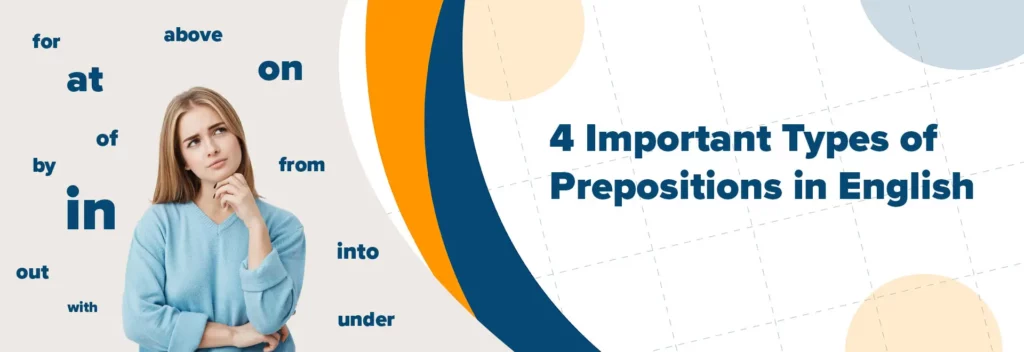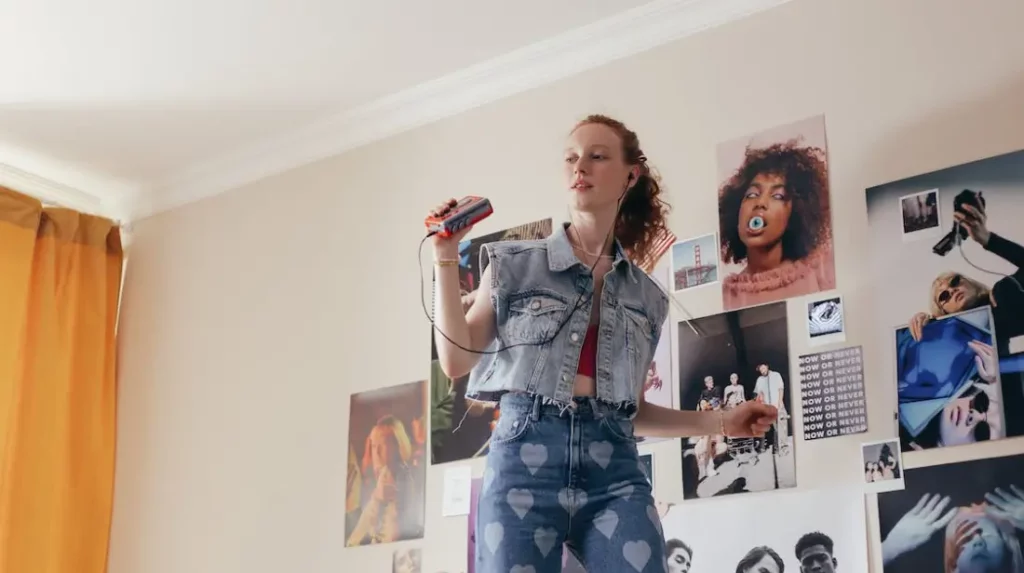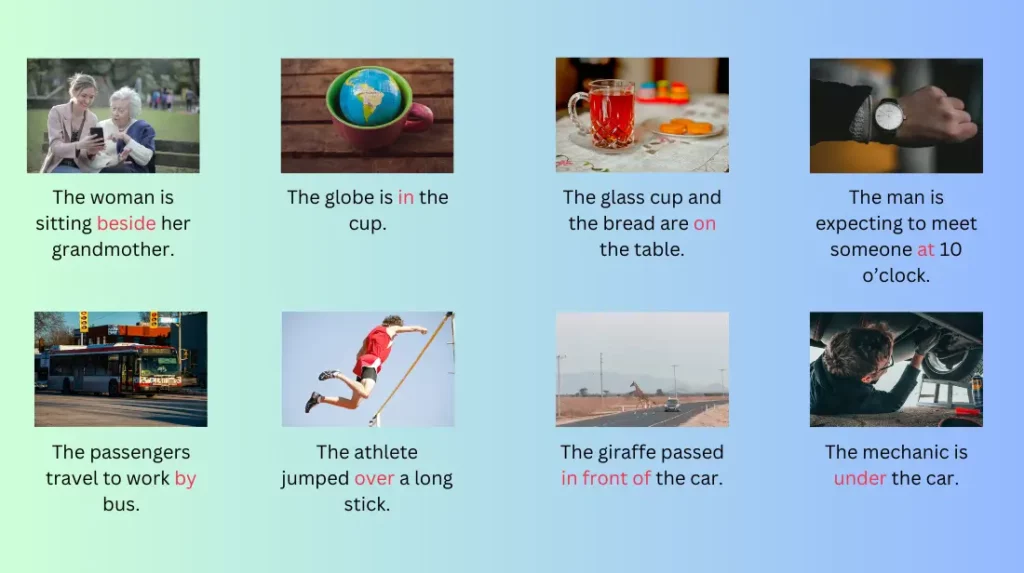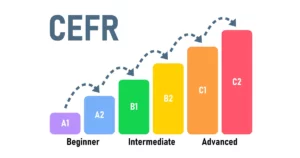
คำบุพบททั้ง 4 ประเภทที่สำคัญในภาษาอังกฤษ
พร้อมความหมาย ตัวอย่าง และวิธีการใช้งาน
เกริ่นนำ
ในไวยากรณ์ภาษาอังกฤษ ประโยคจะไม่มีควาหมายหากมีข้อผิดพลาดหรือตกหล่นส่วนใดส่วนหนึ่งของประโยค (parts of speech) ประโยคที่สมบูรณ์และมีความหมายนั้นจำเป็นต้องมีองค์ประกอบของประโยคอย่างครบถ้วน ไม่ว่าจะเป็นคำนาม คำสรรพนามที่ทำหน้าที่เป็นประธานของประโยค คำคุณศัพท์หรือคำวิเศษณ์ที่ทำหน้าที่อธิบายส่วนประธาน กริยาที่บ่งบอกถึงการกระทำ คำสันธานที่ทำหน้าที่เชื่อมคำหรือเชื่อมวลี และคำบุพบทที่ทำให้ประโยคมีความหมายที่ชัดเจนมากขึ้น
ส่วนประกอบของประโยคนั้นเป็นสิ่งสำคัญมากสำหรับการสร้างประโยค โดยเฉพาะอย่างยิ่งคำบุพบท คำบุพบทในภาษาอังกฤษนั้นช่วยให้ประโยคนั้นมีความสมบูรณ์และมีความชัดเจนมากขึ้น ในการเรียนภาษาอังกฤษ บางครั้งที่อาจจะสับสนว่าควรจะใช้คำบุพบทให้เหมาะสมกับประโยค เนื่องจากคำบุพบทที่แตกต่างกันแต่จะมีหน้าที่เดียวกัน
แน่นอนว่าคุณรู้ถึงคำบุพบทที่พบได้บ่อยในภาษาอังกฤษเช่น “on, in, under, at, of, และ to.” อย่างไรก็ตาม มีคำบุพบทอื่น ๆ ในภาษาอังกฤษที่ถูกใช้ในภาษาอังกฤษและบางครั้งพวกเราอาจไม่สามารถระบุได้อย่างเฉพาะเจาะจงเกี่ยวกับหน้าที่ของมันได้
ในบทความนี้ พวกเราจะแนะนำคุณให้รู้จักกับประเภทของคำบุพบทในภาษาอังกฤษและสร้างความเข้าใจให้กับคุณเกี่ยวกับวิธีการใช้งานคำบุพบทในประโยค
ทำไมพวกเราจำเป็นต้องใช้คำบุพบทและคำบุพบทสำคัญอย่างไร?
สำหรับถามนี้คุณสามารถที่จะตอบได้อย่างทันที ในฐานะของนักเรียนภาษาอังกฤษ แน่นอนว่ามันเป็นสิ่งที่น่าสับสนเป็นอย่างมากในการใช้คำบุพบทให้ถูกต้องเมื่อต้องสร้างประโยคภาษาอังกฤษ พวกเราใช้คำบุพบทในการแสดงความสัมพันธ์ระหว่างองค์ประกอบในประโยคและเชื่อมต่อประโยคเข้ากับเวลา สถานที่และสภาพแวดล้อมอื่น ๆ
นักเรียนภาษาอังกฤษจำเป็นต้องเรียนรู้และเข้าใจเกี่ยวกับคำบุพบทในภาษาอังกฤษ เนื่องจากว่ามันสามารถที่จะเข้าใจความยืดหยุ่นของมันในองค์ประกอบของประโยคและความสามารถในการทำให้ประโยคมีความหมายด้วยการเข้าใจวิธีการที่คำบุพบททำงานในประโยค
เมื่อไหร่ที่เราจำเป็นต้องใช้คำบุพบทในภาษาอังกฤษ?
ไม่ใช่ทุกประโยคในภาษาอังกฤษที่จำเป็นต้องมีคำบุพบท บางประโยคอาจจำเป็นต้องใช้คำบุพบทเพื่อทำให้ความหมายนั้นชัดเจนมากขึ้น เพื่อระบุและเชื่อมประโยคเข้ากับเวลา สถานที่และสภาพแวดล้อมนั้น ๆ

คำบุพบทพื้นฐานในภาษาอังกฤษ
โดยปกติแล้วคำบุพบทในภาษาอังกฤษนั้นจะสามารถแยกออกได้เป็น 4 ประเภท ได้แก่ คำบุพบทบอกเวลา ลักษณะ อิริยาและสถานที่ โดยในคำบุพบทในแต่ละประเภทก็จะมีหน้าที่การใช้งานที่แตกต่างกันออกไป
คำบุพบทบอกเวลา
คำบุพบทบอกเวลานั้นคือการอ้างถึงเวลาหรือกิจกรรมที่จะเกิดขึ้นในเวลานั้น ๆ อย่างเฉพาะเจาะจง สามารถที่จะเป็นวัน วันที่ ปี ฤดูกาล เดือน หรือแม้กระทั่งสถานการณ์ที่พิเศษ โดยจะมีสามคำที่พบได้บ่อยคือ at, in, และ on.
คำบุพบท “at”
คำบุพบท “at” ที่ใช้กับการอ้างถึงเวลาที่เฉพาะเจาะจง
◙ ช่วงเวลา (ตามนาฬิกา)
I usually get up at 4:00 A.M.
Our huddle time is at 8:00 every morning.
◙ ช่วงเวลาอาหาร
My friends and I are meeting up at lunchtime.
At dinner time, my friend will propose to his girlfriend.
She sent me a message at noon on Friday.
◙ ช่วงเวลาในวันหรือช่วงเวลาที่เฉพาะ
My sister often has bad dreams at night.
We will visit Paris at Christmas time.
Her dad plays golf at the weekend.
“At the weekend” นั้นจะพบได้ในบ่อยในภาษาอังกฤษแบบอังกฤษ(British English)


คำบุพบท “in”
คำบุพบท “in” นั้นใช้กับช่วงเวลาใดเวลาหนึ่งของวันหรือช่วงเวลาที่ยาวนั้นกว่านั้น โดยมักจะใช้คู่กับเดือน ปี ฤดูกาล และวันหยุดต่าง ๆ
◙ เดือน ปี ฤดูกาล
The president’s daughter is getting married in December.
In winter, Tokyo is usually cold.
Mr. Johnson will study English in Cebu in July 2024.
The Tokyo Olympics was held in 2021.
◙ ช่วงเวลาของวัน หรือ ช่วงเวลาอื่น
Ms. Wilson is planning to come here in the evening.
In the past, people didn’t have smartphones.
Today’s fashion is the same as it was in the 90s.

คำบุพบท “on”
คำบุพบท “on” นั้นใช้กับช่วงเวลาที่เฉพาะเจาะจงอย่างชัดเจน โดยปกติแล้วจะใช้คู่กับวันที่ระบุอย่างชัดเจนและวันในสัปดาห์
◙ วันในสัปดาห์
My flight leaves at 3:00 P.M. on Tuesday.
The arraignment will take place at the City Hall on Friday morning.
On Monday, the new manager will be introduced.◙ วันที่เฉพาะเจาะจง
She was born on March 15, 1993.
Did you hear that on February 12th, there was a huge bombing in the city center?
The pageant candidates will gather for a photo shoot on June 15.

คำบุพบทบอกลักษณะ
คำบุพบทบอกลักษณะนั้นเป็นการกล่าวถึงว่าสิ่งนั้นเกิดขึ้นได้อย่างไร หรือเกิดอะไรขึ้นบ้าง โดยปกติแล้วจะเป็นคำตอบจากคำถามที่ขึ้นต้นด้วย “How.” นี่คือตัวอย่างของการใช้คำบุพบทนี้
◙ in
I write my articles in English. (How do I write my articles?)
The governor spoke to the public in a calm manner. (How did the governor speak in public?)
My friend talked to me in tears. (How did my friend talk to me?)
The manager approached the employee in a friendly tone. (How did the manager approach the employee?)
◙ with
We eat with a spoon and a fork. (How do we eat?)
The delivery man handled my package with care. (How did the delivery man handle my package?)
The young woman responded to her boss with the utmost respect. (How did the young woman respond to her boss?)
With so much love, the lady accepted her boyfriend’s proposal. (How did the lady accept her boyfriend’s proposal?)
◙ by
Our colleagues go to work by bus. (How do our colleagues go to work?)
Dr. Jose Rizal of the Philippines was killed by gunshots. (How was Dr. Jose Rizal killed?)
She said that we needed to get to the station by hook or by crook. (How do we need to get to the station?)
◙ on
She doesn’t like going to work on foot.
I write my articles on my computer.
◙ for
The ceremony lasted for two hours.
We have not seen each other for quite some time now.
The employee was advised to rest for three days.



Notice that some of these prepositions in English are used as instruments or tools to describe how something is done or how something happens.
คำบุพบทบอกอิริยา
คำบุพบทบอกอิริยานั้นจะใช้เพื่อแสดงถึงการอิริยาของบางสิ่ง โดยปกติแล้วจะใช้เพื่ออ้างถึงอิริยาที่เกิดขึ้นจากที่หนึ่งไปยังอีกที่หนึ่ง
ตัวอย่าง:
I saw the thief put what he stole into his pocket.
It’s tiring to walk around the city on foot.
How long is the flight from London to New York?
It takes me thirteen hours to travel by motorbike across Cebu Island.
She took her handkerchief out of her pocket and offered it to me.
Are you not scared to pass through this tunnel?
I didn’t notice I was driving toward the north of this island.
เกร็ด: โดยปกติแล้วเราจะใช้คำบุพบทประเภทนี้เมื่อมีการพูดถึงบางสิ่งที่เกิดขึ้นและมีการเคลื่อนไหว


คำบุพบทบอกสถานที่
คำบุพบทบอกสถานที่คือการกล่าวถึงสถานที่ที่เป็นที่อยู่ของบางสิ่ง
◙ on – ใช้เมื่อบางอย่างสัมผัสบนสิ่งอื่น
The woman placed her bag on her desk after logging in.
Teacher Jee showed the pen on the book to her students.
She knew she’d be on the top for doing a great job.
◙ over / above – ใช่เมื่อบางอย่างไม่ได้สัมผัสบนสิ่งอื่นโดยตรง และมีช่องว่างระหว่างกันที่เห็นได้อย่างชัดเจน
Planes usually fly over the mountains of Sierra Madre.
Can you hold your hands over your head for more than an hour?
The dog jumped over the fence and ran quickly.
The clock is above the table.
Get some mattresses from above the cupboard.
◙ in – ใช้เมื่อกล่าวถึงบางสิ่งที่อยู่ด้านในของอีกสิ่งหนึ่ง รวมไปถึงสามารถที่จะใช้อ้างถึงสถานที่ที่เฉพาะเจาะจงได้ด้วยเช่นกัน
The flowers in the basket smelled so good.
I heard some noise in my stomach.
In the Philippines, the people are hospitable and friendly.
There are more people in Europe than in Asia.
I love playing with my childhood friends in my hometown.
◙ under / below – ใช้เมื่อพูดถึงบางสิ่งที่อยู่ใต้อีกสิ่งหนึ่ง
The workers usually leave their belongings under their desks.
I found my socks under my bed; they’re dirty.
The dead are buried six feet below the ground.
Make sure to wear skirts that are at least 2 inches below the knee.
◙ between – ใช้เมื่อต้องการกล่าวถึงบางสิ่งที่อยู่ระหว่างกึ่งกลางบางอย่างที่มีสองสิ่ง
You can see the computer between the shelf and the desk.
Between you and me, I am more brilliant.
Could you please tell her to call me between 7 and 9 in the evening?



◙ behind/in front of – คำบุพบทสองคำนี้ใช้เมื่อกล่าวถึงสถานที่ของบางอย่างที่อยู่ด้านหน้าหรือด้านหลังอีกสิ่งหนึ่ง
Our company is behind the cathedral.
Look behind, I am just here.
I am sitting in front of my computer.
Please bring your meal in front of the store.
◙ คำบุพบทอื่น ๆ ที่ใช้บอกสถานที่
My mom bought a new pair of glasses across the street.
The saleslady is standing near the fitting room.
Why don’t you sit by the table?
I did not expect you to sit beside me.
I want to eat my dinner at home.
เพิ่มเติมสำหรับคำบุพบทในภาษาอังกฤษที่กล่าวถึงในบทความนี้นั้น คำบุพบทอย่าง “of” และ “to” นั้นถูกใช้งานและปรากฏให้เห็นมากที่สุดในประโยคภาษาอังกฤษ โดย “of” นั้นจะถูกใช้เพื่อแนะนำถึงวลีที่เกิดจากการรวมกันของ คำนาม + คำนาม
ตัวอย่าง:
I like the sound of music in my ears.
There are many kinds of fish in the ocean.
คำบุพบท “to” นั้นจะถูกใช้เพื่อระบุถึงความต้องการ สถานที่หรือผู้รับสำหรับอิริยานั้น ๆ
ตัวอย่าง:
ความต้องการ: I look forward to seeing you soon.
สถานที่: She is traveling to New York.
ผู้รับ: Could you please give this key to Johan?
คำบุพบทในภาษาอังกฤษเช่น “on, in, at, on, และ by” สามารถใช้ได้หลายครั้งขึ้นอยู่กับบริบทในประโยคที่คุณต้องการใช้ โดยในหนึ่งประโยคสามารถใช้คำบุพบทได้มากกว่หนึ่งคำ
- The girl sat on the wooden platform by the seashore while covering her eyes with her hands as she listened to the waves of the ocean
- Jane and her friends are going on a night out on Friday, at 10:00 PM.
- All the employees gather at the cafeteria at lunchtime to eat their lunch together before going back to work and ending their shift at 5:00 PM.
หากสังเกตที่ประโยคตัวอย่าง คุณจะสามารถระบุได้อย่างชัดเจนว่าคำบุพบทประเภทไหนควรใช้กับสถานการณ์ประเภทไหน

6 กฏเกณฑ์การใช้งานคำบุพบทในไวยากรณ์ภาษาอังกฤษ
- ในคำบุพบทแต่ละคำควรมีกรรมต่อท้าย
She glanced through the window of her room.
I saw what had happened with my own two eyes.
- คำบุพบทควรอยู่นำหน้าคำนามหรือคำสรรพนาม
Focus your eyes on the road.
He offered his services to them.
- คำสรรพนามที่ต่อท้ายต้องอยู่ในรูปกรรม
I don’t want to put the blame on you.
She saw the best in me.
- มีคำบุพบทอยู่สองรูปแบบคือคำเดี่ยวกับกลุ่มคำที่ทำหน้าที่เป็นคำบุพบท
Tell me something interesting about yourself. – Single-word
On top of all your achievements, having a successful career is the best. – complex; a group of words
- อย่าสับสนระหว่างคำบุพบท ‘to’ กับกริยารูปปกติ + ‘to’.
I am here to introduce a new product. – to+ กริยารูปปกติ(to + กริยาปกติ)
I have always been looking forward to meeting your parents. – คำบุพบท (to + อาการนาม)
- กริยาไม่สามารถเป็นกรรมหรือต่อท้านหรือเป็นกรรมของคำบุพบทได้
The event was for walk of the devotees.
She was in speak of her opinion.
การรู้ถึงกฏการใช้งานคำบุพบทในภาษาอังกฤษนั้นจะช่วยเหลือคุณเป็นอย่างมากในการเรียนภาษาอังกฤษ ไม่ว่าคุณจะเข้าใจหรือรู้คำบุพบทมากน้อยแค่ไหน แต่สิ่งที่สำคัญคือการที่คุณสามารถใช้งานมันได้อย่างถูกต้องและบ่อยครั้ง
คำบุพบทนั้นปรากฏขึ้นได้ทุกที่ หน้าที่ของมันในภาษาอังกฤษนั้นถือเป็นตัวหลักของภาษาอังกฤษ มันสามารถทำให้เข้าใจประโยคต่าง ๆ ได้ง่ายมากขึ้น รวมไปถึงการทำให้ความหมายของประโยคนั้น ๆ ชัดเจนมากขึ้นอีกด้วย มันไม่เพียงช่วยพัฒนาทักษะการพูดภาษาอังกฤษ แต่สำหรับการเขียนด้วยเช่นเดียวกัน เมื่อคุณคุ้นเคยกับการใช้คำบุพบทคุณจะเริ่มก้าวข้ามความกลัวที่มีต่อการพูดภาษาอังกฤษ และมีความมั่นใจในการสื่อสารมากขึ้น
เวลาฝึกฝน!
ลองตรวจสอบดูว่าคุณเข้าใจคำบุพบทในภาษาอังกฤษมากขึ้นแค่ไหน ลองเขียนคำตอบว่าคำบุพบทที่ปรากฏขึ้นนั้นเป็นคำบุพบทประเภทไหน
__________ 1. Are you going to see me at 7:00 PM tonight?
__________ 2. They knew that their sister was going home in December.
__________ 3. Ms. Millers forgot that she had put her keys in her bag this morning.
__________ 4. I saw a woman wearing red sneakers at the café yesterday.
__________ 5. On March 18th, my parents are going to celebrate their wedding anniversary.
__________ 6. Did you inform her of her tasks as the new staff?
__________ 7. I usually go home to my hometown by plane as it is more convenient.
__________ 8. The caretaker transferred the plants to the garden with a wheelbarrow.
__________ 9. Nowadays, it is easier to travel from Japan to Korea.
__________ 10. Never look behind you when you watch a horror movie.
__________ 11. I found an interesting book on the shelf.
__________ 12. In the old days, people wrote letters to their loved ones.
__________ 13. She waited for the train for a long time.
__________ 14. The CEO is seated between the President and the Vice President.
__________ 15. Mary put the Koi fish into the fish bowl.



